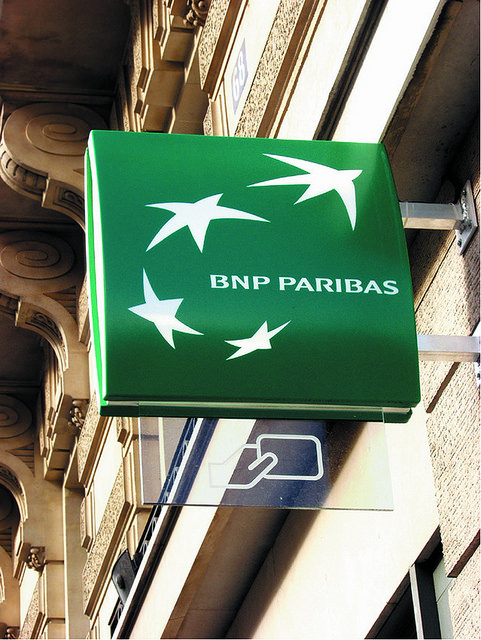RARE Infrastructure: Why Are Investments In Infrastructure Interesting?
| For Fórmate a Fondo | 0 Comentarios

One of the first things that you realise when you start looking into the infrastructure asset class is that everyone’s definition of what ‘infrastructure’ is varies. Our view of infrastructure is as follows; we are looking for hard assets that provide an essential service to an economy, and which have a degree of price certainty built in so that we know the asset provider is going to get paid for providing the service. It is this approach that forms the basis of our thinking, says Nick Langley, co-CEO & co-CIO, RARE Infrastructure, when asked about investment types in listed infrastructure investing.
The infrastructure universe can be broadly separated into four main asset types: community and social assets, regulated assets, user pay assets, and competitive assets. You can split the universe in this manner because of the different types of assets that fall within each group, and their different characteristics as investments. It is important to do so because you’re going to get very different types of risk and return profiles based on the type of infrastructure assets that you hold, he adds.
The first group, community and social assets, is those assets that many people will mention when you ask them to name infrastructure; schools, hospitals, and prisons are some of the main examples. These are assets which have traditionally been funded with public sector involvement, and which have a clearly visible beneficial impact on society, although for investors may offer low returns with limited growth potential.
The second group is regulated assets. These are assets that operate in a regulated environment; their operations, and therefore return profiles, are impacted by the regulator of their particular industry. The key examples here are energy companies (e.g. gas and electricity utilities which manage the gas and electricity networks) and water utilities. These companies are regulated because they typically operate in markets that tend to be natural monopolies. For example, the UK, like most countries, only has one national electrical transmission network which is managed and operated by National Grid.
The third group, user pay assets, are assets that are involved with moving people or goods around an economy. For example, companies that operate road and rail networks, airports, and ports. These companies are not regulated, however they often operate with concession-based contracts; for example, a company may hold the lease to operate a particular toll road for a certain amount of time. User pay assets are more exposed to growth than regulated assets, as their revenues are typically linked to economic or population growth.
The final group consists of assets that operate in competitive markets, with exposure to wholesale prices, and typically without the security of regulation or concession contracts. An example here is energy generation and retail companies – rather than managing the energy networks, these are companies that create energy and sell energy to the end user. They are therefore subject to supply and demand risk, and potentially commodity price risk.
Which are the most interesting investments?
We focus on investing in the regulated assets and user pay assets. We do so due to the fact that these companies operate either within a defined regulatory framework or with long-term contracts in place, which underpins the return profiles of these companies. The cash flows of these companies typically stretch out decades into the future (i.e. they have a long duration), and the frameworks that they operate in means that with the appropriate expertise it is possible to estimate these cash flows, and therefore the intrinsic value of the companies, with some degree of accuracy.
This means that the main types of assets we invest in include the regulated gas, water, and electricity companies in the regulated assets space, and then toll road, rail, port, and airport companies in the user pay space.
Why are investments in infrastructure interesting?
Infrastructure has a number of characteristics that are often attractive to investors, including a strong and stable risk/return profile, inflation protection, income, lower correlation to traditional asset classes, and defensive qualities such as generally lower drawdown in falling equity markets.
Stable risk return profile and inflation protection – as infrastructure companies are typically involved in the provision of an essential service (often over a long time period), backed by hard assets, whilst having a degree of price certainty (e.g. a regulatory framework or long-term contract), we see the risk/return profiles on offer in the sector being stable over time. Whilst any return will involve some degree of risk, the nature of the asset class means that skilled investors can achieve a return that more than compensates for the risk incurred. In addition, given underlying infrastructure assets typically have some degree of inflation-linkage built in through these regulatory frameworks or long-term contracts, infrastructure provides good protection against changes in inflation. We estimate that 70% of the cashflows of companies invested in within our flagship Value strategy are either directly or indirectly linked to inflation.
Income – As discussed in more detail below, infrastructure typically provide an attractive income over time, given the recurring and growing dividends paid by many companies within the opportunity set.
Lower correlation to traditional asset classes – infrastructure can act as a good diversifier in a portfolio, given its lower correlation to asset classes such as equities and bonds. This is a result of the underlying return streams of infrastructure companies being strongly linked to the regulatory or contractual frameworks in place, rather than typical drivers of equity and bond returns. Even more importantly, we frequently see this diversification benefit increase in times of market stress, meaning that infrastructure can provide protection through diversification exactly when it is needed the most.
What yields could you expect from these investments?
The type of listed infrastructure companies we invest in provide an attractive (typically high single digit) return, whilst achieving this in a relatively low risk manner. We also see listed infrastructure providing favourable up- and down-market performance characteristics, participating in returns in up markets, but providing protection in down markets. This is a result of the defensively natured (and often income paying) regulated assets providing protection in times of market stress.
The yield on the assets we invest in varies – in the user pay assets we typically see a lower yield, however in the regulated assets we see significant and growing dividend yields over time, with figures in the 5% – 10% p.a. range not uncommon. Bringing these two asset types together, we would expect to see a yield of say 3.5% to 5.5% in a portfolio which maintained a 50:50 weighting between user pay assets and regulated assets.




